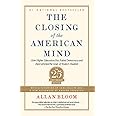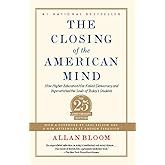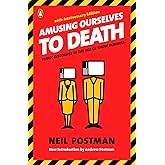Buy new:
$15.60$15.60
FREE delivery Tuesday, April 29
Ships from: Abide Bookstore Sold by: Abide Bookstore
Save with Used - Very Good
$9.82$9.82
Ships from: Amazon Sold by: 1984 Book Store

Download the free Kindle app and start reading Kindle books instantly on your smartphone, tablet, or computer - no Kindle device required.
Read instantly on your browser with Kindle for Web.
Using your mobile phone camera - scan the code below and download the Kindle app.



 Audible sample
Audible sample The Culture of Fear: Why Americans Are Afraid of the Wrong Things Paperback – March 16, 2000
Purchase options and add-ons
- Print length312 pages
- LanguageEnglish
- PublisherBasic Books
- Publication dateMarch 16, 2000
- Dimensions5.5 x 1 x 8.25 inches
- ISBN-100465014909
- ISBN-13978-0465014903
- Lexile measure1560L
There is a newer edition of this item:
Discover the latest buzz-worthy books, from mysteries and romance to humor and nonfiction. Explore more
Frequently bought together

Customers who viewed this item also viewed
Editorial Reviews
Review
"Lucidly exposes how the media and politicians play to Americans' fears, presenting anomalous incidents as rampant dangers." -- Entertainment Weekly
"[Glassner] is a sharp critic of the hypocrisies that compose much of American political discourse." -- LA Weekly
"[Glassner] wields an impressive body of research and consequently enjoys the power of redefining reality for a moment in history." -- Salon
About the Author
Product details
- Publisher : Basic Books; Later Printing edition (March 16, 2000)
- Language : English
- Paperback : 312 pages
- ISBN-10 : 0465014909
- ISBN-13 : 978-0465014903
- Lexile measure : 1560L
- Item Weight : 11.2 ounces
- Dimensions : 5.5 x 1 x 8.25 inches
- Best Sellers Rank: #2,568,845 in Books (See Top 100 in Books)
- #5,450 in Emotional Mental Health
- #9,099 in Popular Culture in Social Sciences
- #53,414 in Sociology (Books)
- Customer Reviews:
About the author

The author of seven books on contemporary social issues, sociologist Barry Glassner has been described by The New York Times as "a master at the art of dissecting research." He has published research studies in The American Sociological Review, American Journal of Psychiatry, and other leading journals in the social sciences. His articles and commentaries have appeared in newspapers including The New York Times, The Wall Street Journal, The Los Angeles Times, The Washington Post, and The Chronicle of Higher Education, and he is the recipient of several honors, including an "outstanding book of the year" award from Choice magazine.
Glassner's book, The Culture of Fear: Why Americans Are Afraid of the Wrong Things (Basic Books, 2010), is a national bestseller that was named a "Best Book of the Year" by Knight-Ridder newspapers and by the Los Angeles Times Book Review.
In his The Gospel of Food (Ecco/HarperCollins, 2007), Glassner argues that by abandoning food fads and mythical beliefs about diet, Americans will eat better and lead happier lives. "Glassner exposes the strained interpretations, 'prejudices dressed up as science,' and pure fabrications behind much received wisdom," The New York Times wrote of The Gospel of Food, a book that The Los Angeles Times described as "pure fun to read."
Find more about him at www.barryglassner.com
Customer reviews
Customer Reviews, including Product Star Ratings help customers to learn more about the product and decide whether it is the right product for them.
To calculate the overall star rating and percentage breakdown by star, we don’t use a simple average. Instead, our system considers things like how recent a review is and if the reviewer bought the item on Amazon. It also analyzed reviews to verify trustworthiness.
Learn more how customers reviews work on AmazonCustomers say
Customers find the book well researched and enjoyable to read, with good value for money. However, the content receives mixed reactions, with some finding it insightful while others note factual inaccuracies. Moreover, the political content draws criticism for being very political, and several customers mention that the pacing becomes repetitive.
AI-generated from the text of customer reviews
Select to learn more
Customers find the book readable and well-written, with one mentioning it was required reading for a Writing 121 class.
"This book is crucial. Great look at the distractions and fears in our Sunday papers...." Read more
"The Cultue of Fear was very well written with excellent real life examples...." Read more
"...This is a good read, if only for the reassurance in the validity of statistics...." Read more
"...Good to have in your library." Read more
Customers find the book offers good value for money.
"A good buy. Came in great condition and on time. The book itself is useful--dated now, but things go so fast! Good to have in your library." Read more
"Great book that points out some fairly obvious things, but it was a good reminder to not get sucked into the wrong things." Read more
"Great book! We buy things we don't need out of fear, fear inspired by the media and our government. A frightened populace is easier to govern...." Read more
"Quick delivery, good price & product as described" Read more
Customers have mixed opinions about the content of the book, with some finding it well-researched while others point out factual inaccuracies.
"This book is crucial. Great look at the distractions and fears in our Sunday papers...." Read more
"The Cultue of Fear was very well written with excellent real life examples...." Read more
"...Only anecdotal evidence and misleading statistics typically support the latest report on the newest "national menace"...." Read more
"A good buy. Came in great condition and on time. The book itself is useful--dated now, but things go so fast! Good to have in your library." Read more
Customers have mixed views on the book's political content, with several finding it very political, while one customer describes it as leftist propaganda.
"...This book is much more politically tilted than the others I'd read...." Read more
"...It is clear that this author has a political adgenda...." Read more
"...as the title and the book's categorization would suggest, but a political diatribe...." Read more
"Lots of hype and very political." Read more
Customers find the pacing of the book repetitive.
"...My one disappointment about the book is that it starts to get repetitive, falling back frequently to the issue of gun control...." Read more
"...For me it grew a bit tiresome and drawn out. Not what I expected, but I don't regret reading it either." Read more
"Too repetitive and too political..." Read more
Top reviews from the United States
There was a problem filtering reviews. Please reload the page.
- Reviewed in the United States on January 26, 2000Actual newspaper headline: The number of homicides committed by children age 12 and under grew by 125%! Should we be afraid of being done in by tiny tots? Well, the 125% increase brings the annual total up to about 40 per year. I would guess that means there are 40 bad eggs in a population of about 40 million little guys.
The misleading reporting just recounted is what this book is all about. Only anecdotal evidence and misleading statistics typically support the latest report on the newest "national menace". Then, to really convince you that you should be frightened out of your wits, some second rate professional or scholar is quoted saying that things are just awful. A prominent west coast newspaper declared that the Pacific Northwest was a region particularly "plagued by a rise in road rage", and then after 22 paragraphs of anecdotes and warnings, informed the reader that 5 people had died in road rage incidents in the region in the last five years. "One death a year constitutes a plague?" asks the author.
In my own experience I am frequently frustrated by these kinds of stories which are often found in the nation's two major newsweeklies (which publications come under frequent attack by Glassner). I am repeatedly asked to believe in some new horror for which only a few anecdotes are presented as support.
The sad thing is that this unfortunate reporting has resulted in unnecessary laws; corporate bankruptcies; misapplication of scarce resources; and the ignoring of true problems and their causes. You may disagree with some of the author's views, but hopefully reading the book will make you more skeptical the next time a news anchor tries to inform you of the national danger brought about by the increasing number of people bludgeoned to death with a frozen leg of lamb.
- Reviewed in the United States on July 23, 2020This book is crucial. Great look at the distractions and fears in our Sunday papers. I had just read Chomsky - manufacturing consent, now this gem to follow it up. Honestly don’t think I can read the paper anymore. ‘You don’t read your uninformed- you do your misinformed’- Denzel
- Reviewed in the United States on August 9, 2001This handy book brings it all out into the open: Americans and others are being manipulated by a mass media organization that thrives on hype, sensationalism, and poor research. And we allow it to happen because we're largely too lazy to cross-check the facts for ourselves; many people have the attitude that "it must be true, I read it in a book" (or "I saw it on the news") and don't bother to evaluate the data for themselves.
Glassner defuses several classic scare-myths of our times, revealing the hard facts and numbers behind them. Often the results are diametrically opposed to the hype-driven "facts" we've been fed by the media. This is not to say that the media are involved in some sort of conspiracy to defraud the public; instead their reporting is largely driven by the need to sell their product, i.e. the "news" itself. Reporting standards suffer badly when media organizations are solely driven by the need to be the "first to market" with a new story. Or the publisher wants a particular "spin" thrown at a story to match his or her own personal viewpoint. Or the reporter doesn't care. In any case, the result is sensationalized reporting and, frequently, a hysterical public.
The only real flaw apparent in the book is Glassner's apparent hatred for firearms, and even he falls for the gun control myths that the media have perpetuated. Otherwise he does a stellar job; this book should be required reading for reporters as well as public officials, but every citizen can benefit from the basic ideas, which effectively boil down to "don't trust everything you read; learn how to be critical of the data, and look for the ulterior motive."
- Reviewed in the United States on March 24, 2014The Cultue of Fear was very well written with excellent real life examples. I had an understanding of why media drives fear into the hearts of the masses, but fear is derivative in so many aspects of our lives. If everyone reads this book, maybe society has a chance of becoming a better community, and not hide away in their homes, fearing to open the door.
Top reviews from other countries
 Maxime RenaudReviewed in Canada on December 12, 2015
Maxime RenaudReviewed in Canada on December 12, 20155.0 out of 5 stars Absolutely recommend this book to anyone who watches the news.
Amazing work. Mostly covers issues that were important in the 1990s, but the same Fear recipe is used by today's media. Extremely eye-opening, and reassuring, since it puts everything into context: life is not dangerous, taking the plane is extremely safe, driving your car is more dangerous than terrorism. So full of truth, I love it.
 garbrexReviewed in Japan on September 24, 2003
garbrexReviewed in Japan on September 24, 20035.0 out of 5 stars Don't Fear This
Barry Glassner's 'The Culture of Fear' ranks right up there with Michael Moore's 'Downsize This' for putting the current trends in American media, politics, and thoughts into perspective. This book is a must-read for the ease with which it confronts popular myths played up by the American media, politicians, and non-profit groups. I highly recommend this book.
-
 S B 37Reviewed in France on March 20, 2011
S B 37Reviewed in France on March 20, 20115.0 out of 5 stars Pour rester critique
J'ai découvert ce livre il y a quelques années, et les thèses argumentées que l'on y trouve offrent une chance de rester lucide sur la construction médiatique et politique du monde.
-
 wontonwooReviewed in Japan on November 11, 2004
wontonwooReviewed in Japan on November 11, 20045.0 out of 5 stars アメリカでも日本でも同じ所ありますね
They(Media) invite us to redirect (more accurately, misdirect) our self-doubts. 自分より極端な例をあげつらって、自分てこんなに普通なんだと自己不信を取り除いてくれるニュースを見せられていると言っています。西尾幹二氏の「確信の喪失」に繋がるように思います。アメリカについて書かれていますが、流される情報の正確さを確認する術を持たない我々は、少なくとも「結局本当はどうであったのかを見せられるまで」情報はあくまで疑いとして扱う態度であるべきと思いました。「バイオインフォマティクスで100匹のマウスを使い確認しました」と言っても「100匹のマウスの仕入先が同じで、偏った遺伝子配列を基に実験した」こともありでしょう。サンプルのサイズ、確立分布における歪度など統計を勉強しないと簡単に騙されるなと思いました。
















